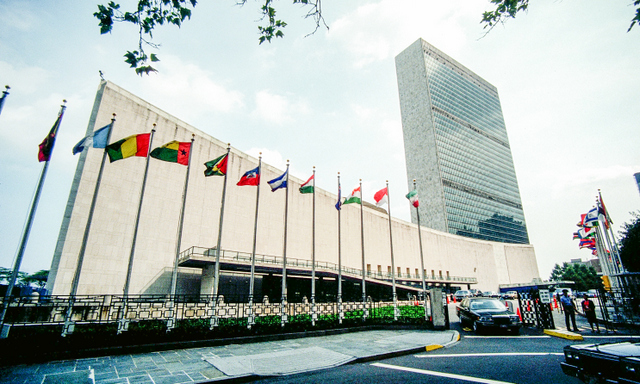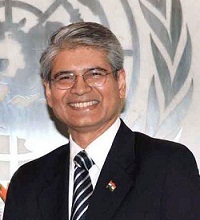

The author, who was India’s Permanent Representative to the United Nations in New York from April 2013 to December 2015, takes a close look at the issues before the United Nations, and lists the priorities for the World Body in 2018. The three priorities, according to him, are “Completion of process of reforming the UNSC”; “accelerated implementation of the socio-economic goals of Agenda 2030”; and “reforming the Human Rights Council to uphold fundamental human rights and freedoms”.
As the United Nations (UN) approaches its 75th anniversary in 2020, the world it represents has changed beyond recognition. From its original 51 founding members, the UN General Assembly (UNGA) today has 193-member countries. While the three “pillars” of the UN continue to be global governance in the political, socio-economic, and human rights areas, there is growing restiveness among the majority of the UNGA member states for reforming the UN to reflect ground realities.
The UNGA’s new assertiveness in influencing decisions on UN functioning was on display during the November 2017 vote in the UNGA on electing judges to the International Court of Justice (ICJ). The unscripted situation, in which India’s candidature enjoyed majority support among the countries in the UNGA, was offset by the power play in the UN Security Council (UNSC), orchestrated by the solidarity of its five permanent members, which prevailed on several other non-permanent members to consistently back the candidate of the United Kingdom. This deadlock was finally resolved through mature diplomacy, with the United Kingdom deciding to concede the election in view of the overwhelming preference of the UNGA. India remained the sole candidate for the fifth ICJ seat, which it duly won, being the only name left on the ballot. This outcome has been greeted in many countries as a harbinger of reforming the UNSC itself by the UNGA.
The issue of “UN reforms”, articulated by the UN Secretary General Antonio Guterres and endorsed by President Donald Trump of the United States at their joint meeting in New York in September 2016, has received prominence. However, these are reforms of the UN Secretariat, and reflect the interests of the main financial contributors to the UN budget. The intention is to get more “value” for money, with a parallel attempt to ensure that the interests of financial contributors are reflected in the key managerial positions of the Secretariat.
Member states of the UN represented in the UNGA, on the other hand, are acutely conscious that the UN faces a larger test of its credibility related to its decision-making process and the priorities it gives to its negotiated agendas. In these areas, the impetus for UN reform has to come from the UNGA, and not the UN Secretariat.
The linkage and inter-dependence between peace and development has been woven into the UN Charter since 1945. The perception that the world needs to “sustain” the peace arrived at after the end of the Second World War by “securing” the peace, created the two main organs of the UN under the UNGA. Realpolitik determined that one organ, the United Nations Security Council (UNSC), mandated by the UN Charter with the “primary responsibility” for maintaining international peace and security, operated on non-democratic principles. This was essentially due to the privilege given by Article 27.3 of the UN Charter to the five permanent members (China, France, Russia, the United Kingdom and the United States of America) to veto any decision of the UNSC without giving any reason or accountability. The other organ, the Economic and Social Council or ECOSOC, responsible for global socio-economic development, was imbued by the democratic principle of one-country one-vote, and adherence to the UNGA’s process of taking decisions by majority voting.
Due to this dichotomy, the focus of UN reform in the UNGA has been on the UNSC. The emergence of new challenges and threats to international peace and security in the 21st century has been accompanied by the mushrooming of crises across all the continents of the world. These include Europe (Ukraine and Cyprus), Asia (Syria, North Korea, Yemen, Iraq and Afghanistan), Africa (South Sudan, the Democratic Republic of Congo, Central African Republic, and Mali) and Latin America (Haiti and until recently Colombia). The UNSC has been singularly ineffective in resolving these crises, often looking to the UN peacekeeping operations it mandates to perform the role of preventive diplomacy.
The first priority of the UNGA in 2018, therefore, must be to complete the process of reforming the UNSC. The mandate for this reform was given to the UNGA by world leaders at the 2005 UN Summit thirteen years ago. The Summit had declared that “early reform” of the UNSC was needed to “enhance its effectiveness and the legitimacy and implementation of its decisions.”
How can the UNGA implement this objective in 2018? The UNGA has made incremental progress in implementing its mandate for UNSC reform. It has already agreed on five key areas for UNSC reforms, as well as on inter-governmental negotiations to conclude these reforms. In September 2015, the UNGA unanimously agreed to consider a text submitted by 122 countries (including permanent members France and the UK) containing proposals on each of the five areas, which would be integrated into a UNGA resolution.
Before 14 September 2018, when the 72nd Session of the UNGA ends, a minimum of 129 members of the UNGA must table and adopt a resolution amending the UN Charter to reform the UNSC. This will set the timetable for implementing the reforms holding elections to the new seats of the UNSC in 2019, enabling a reformed UNSC to begin operating by 2020, when the UN marks its 75th anniversary.
The opposition to any such attempt will continue to come from the five permanent members of the UNSC. However, in the UNGA these five countries do not have the veto. A two-thirds majority is needed to adopt such a UNGA resolution. This will set the stage for applying the moral power of the UNGA, based on its broad-based interest in reforming the UNSC, to prevail over the status-quo position of the five permanent members. In this context, introducing a multi-stakeholder campaign, including global thought and business leaders, in favor of a UNGA resolution on reforming the UNSC would accelerate the acceptance of such a resolution by the permanent members. Such an approach paid dividends in the UNGA’s success in September 2015 on agreeing on the ambitious UN socio-economic development objectives contained in Agenda 2030 on Sustainable Development. A multi-stakeholder approach is also built into the UN’s implementation of the Tunis Agenda for a digital global society.
A second major priority for UNGA member states in 2018 will be to accelerate implementation of the socio-economic goals of Agenda 2030. The overarching goal of this Agenda is the eradication of poverty by 2030. While individual members of the UNGA have agreed to focus on their national socio-economic programs to achieve the targets of the 17 Sustainable Development Goals at the core of Agenda 2030, the time has come for the UNGA to focus attention on two critical “means of implementation” which have been agreed to by all countries to catalyze this process.
These two areas are financing for development and the application of technologies for development. The way forward has been identified by the Addis Ababa Financing for Development Conference of July 2015, and the UNGA High-Level Review of the Tunis Agenda for a World Information Society in December 2015. At its High-Level Political Forum meeting in July 2018, the ECOSOC and the UNGA will have an opportunity to convene a dedicated forum to assess how global commitments on these two areas are being implemented on the ground in individual member states of the UNGA. This effort must be driven by member states, to ensure that the UN is responsive to their aspirations on the ground.
A third priority for the UNGA in 2018 is in the area of human rights. Already, calls have been made by the United States for reforming the HRC. These calls should be addressed within the UNGA framework. The UNGA has demonstrated its ability to address concerns expressed by some countries at the profile of countries represented in the HRC. For example, in 2015, Pakistan was unable to get re-elected to the HRC, as was Russia in 2016.
Reforming the HRC needs to go beyond the representation of countries, and address the ability of the HRC to uphold fundamental human rights and freedoms, as set out in the UN Charter. The UNGA in 2018 must address the actual work being done in the HRC, especially in its Universal Peer Review or UPR process. This process is critical to ensure adherence to the UN Charter’s human rights standards. The fact that the HRC devotes only three hours to the UPR of each of the 193 members of the UNGA is one such issue, since this limited time applied uniformly to all countries being reviewed does not allow either the country being reviewed or the countries reviewing the scope for a focused interactive discussion. Making such reforms in the HRC will enable it to become the main body under the UNGA for human rights issues. This, in turn, will mean that any concern on human rights issues by UN member states should be raised in the HRC, and not in the UNSC, which has been the practice for more than two decades now, resulting in “perilous interventions” in the words of a distinguished Indian envoy to the UN.
While these three priorities should engage the UN in 2018, the fact that the world is impacted by violent conflict and degrading poverty will ensure that “securing” the peace will have to precede “sustaining” the peace. The experience of multilateral diplomacy over the past seven decades has shown that to sustain peace, the focus has to be on resolving disputes peacefully, as set out in Chapter Six of the UN Charter. Any optimism about the success of the UN to become “fit for purpose” must be based on the convergence of the efforts of the UN Secretary General and the UNGA for preventive diplomacy, giving primacy to the diplomacy of peace over the diplomacy of war.
(Asoke Mukerji is a former Ambassador and Permanent Representative of India to the United Nations in New York. He can be reached at 1955pram@gmail.com)





Be the first to comment